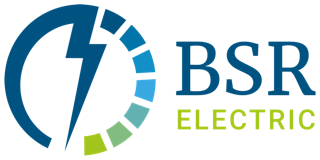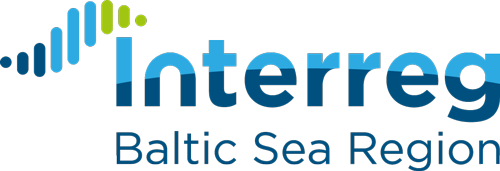e-Buses
Cities around the BSR are facing both pressure and support to introduce e-buses into their public bus fleets. At the same time, much information is lacking regarding both investments into electric buses and operation of electrified fleets.
Public transport providers in Hamburg, Germany, and Tartu, Estonia, have tackled the challenges related to the integration of electric buses into urban bus fleets. Project partners assessed issues related to investments, such as procurement, technical solutions, and evaluated which factors influence performance and driving range of e-buses.
Demonstration action
The public transport company VHH in the City of Hamburg, Germany, aims to implement electric buses into their fleet. BSR electric is supporting this process by analysing data from e-bus operation, with the aim to evaluate how different parameters influence the driving range of the e-buses, such as ambient temperature, route topography, driver behaviour and others. For this purpose, systems for the acquisition of the data were implemented and the data sets were analysed. During the process, lessons learned and best practices generated in the pilot phase of the implementation are be generated and disseminated.
In Tartu, Estonia, the goal is to provide a reliable and environmentally friendly public transport service. In 2019 the Tartu City Government started a ten-year contract of public transport by gas-powered buses. Nevertheless, for the next contract period starting in 2029, Tartu targets the implementation of electric buses running on renewable energy. In order to identify operational and logistic challenges of e-buses relevant for the transition of the transport system, Tartu procured and tested an e-bus under real-life conditions.
Results, lessons learnt and recommendations
The implementation of e-buses can be delayed due to quality issues with manufacturers, since e-bus technology is not yet a well-proven technology. This can finally lead to delays in the start of the e-bus operation. Also, the required changes in IT infrastructure are usually more extensive and time-consuming than estimated and can delay IT-supported automated data acquisition. Data acquisition and analysis are an essential tool for monitoring and optimizing the operations of an electric bus fleet. Nevertheless, operational data is often not freely provided in the required depth by bus manufacturers, but instead sold. Therefore, the free availability of data should already be specified in the procurement process.
During the test phase, it was found that the most significant impacts to the driving range of an e-bus are the ambient temperature, route characteristics, and driving efficiency. The ambient temperature cannot be controlled, but some measures can limit its impact, such as installing efficient heat pumps or adapting standards for climate control in the passenger area. The only parameter which can be actively influenced is the driving efficiency. An inefficient driver can lead to a fuel consumption approximately 15 to 30 % higher compared to an efficient driver. Several measures can be taken to improve this parameter, from specific training focusing on energy-efficient driving to monitoring tools and feedback systems for drivers. It is essential for large-scale implementation to monitor, improve and potentially incentivize driver efficiency, because this has an economic and ecologic impact especially on larger e-bus fleets.
In Tartu, the e-bus was successfully tested over a period of 12 months, during which approximately 90.000 passengers were transported over a distance of nearly 50.000 km. The results are very satisfactory, due to the low operational costs and weather resistance of the e-buses. The passengers reacted very positively to the low noise emissions, the lack of exhaust gases and the smooth movement.
During the pilot, different datasets were collected, interviews were performed with different stakeholders and a web-based public survey was conducted. Data collected from the pilot and from the public survey was used for analysis. The first conclusions from the analysis show that:
-
The main technological factor to consider is the charging strategy i.e. whether to choose opportunity charging with pantograph charging stations along the bus route or depot charging, via a plug-in charger at the depot. Opportunity charging combined with overnight depot charging are the most effective charging methods identified in this study.
-
The data from the e-bus pilot in Tartu indicates that the initial costs of e-buses are significantly higher than for biogas and diesel buses. Nevertheless, when comparing the total costs of ownership for a single bus on a single route over an operational period of 15 years, both e-buses with depot charging only and opportunity charging are less expensive than diesel and biogas buses. Using the experiences from the Use Case, the current data assumptions and considering an operational time frame of 15 years, it can be said that e-buses are economically more attractive than diesel and biogas buses.
-
Feedback from the drivers was very positive: the operational experience was much better compared to a diesel or gas bus as it was not physically exhausting for the drivers. According to the interviews the biggest challenge in integrating a fleet of e-buses are of technological kind, e.g. the currently limited ranges and the cost of investments. However, special attention should also be placed on training drivers to use the new technology.
-
Well-thought-out IT systems and real-time data exchange are crucial for the planning and performance of e-bus operations. Special attention must be paid to data acquisition issues already before procuring the buses. It has to be thoroughly defined which data has to be provided in which way. This should also be considered in the tender process to avoid later problems with OEMs only wanting to provide limited data or for additional payments.
Key recommendations are summarized in a theme-specific Action Checklist for Municipalities and Public Transport Providers.
Featured outputs
-
Towards more efficient e-bus operations, presentation by Nina Zeun, Verkehrsbetriebe Hamburg-Holstein (VHH), Germany, for Riga Mobility Summit 2020)



